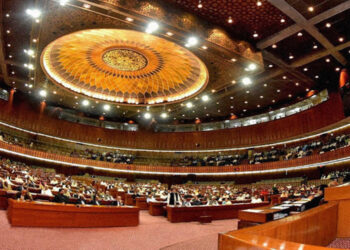Iran’s resilience turned down Trump’s illusion of victory — the ceasefire announced days after the strikes seems more a face-saving maneuver than a product of successful diplomacy. The current situation in the Middle East and Ukraine alarms the urgency of a Multipolar World.
While President Donald Trump continues to sway on the “success” of the U.S. airstrikes against Iran’s nuclear sites — boasting about obliterated centrifuges and buried enrichment facilities — the reality on the ground tells a far different story.
The sudden and unexpected ceasefire between Israel and Iran has left not only global defense experts but much of the international media perplexed and skeptical. If this was indeed a tactical triumph, why the immediate call for calm?
The answer may lie in Iran’s quiet preparedness. According to reliable Iranian sources and intelligence leaks, Tehran had anticipated the attacks. The enriched uranium and critical nuclear equipment had already been relocated to undisclosed, hardened facilities — rendering much of the aerial bombardment symbolic rather than strategic. As this truth emerged, Trump’s celebratory tone began to falter — his mood swings in response to media skepticism and leaked satellite images now speak louder than the bombs dropped over Fordow, Natanz, or Isfahan.
The strikes, coordinated by U.S. and Israeli forces, were visually dramatic but far from decisive. Iranian air defenses weren’t entirely caught off guard. While some infrastructure was damaged, Iran’s capacity to rebuild remains intact. Experts from NATO to Asia suggest the setback may delay nuclear progress for a few months — not years. In other words, the attack barely scratched the surface of Iran’s long-term ambitions.
If this was intended as a show of force to pressure Iran into submission, it has spectacularly backfired. Tehran not only withstood the military offensive but responded forcefully — targeting U.S. military assets in neighboring countries, inflicting infrastructure damage, and delivering a psychological jolt to Washington’s sense of invulnerability. Trump’s gamble did not yield a checkmate — it forced a desperate diplomatic pivot.
The ceasefire announced days after the strikes seems more a face-saving maneuver than a product of successful diplomacy. Iran, bloodied but unbowed, holds its position with wounded pride but unshaken resolve. Meanwhile, the United States — facing mounting global condemnation and lacking clear gains — is choosing to regroup under the guise of peace talks.
Let’s be clear: this is not peace. This is a high-stakes timeout. Both sides are recalibrating their positions, not reconciling their grievances. Iran, having demonstrated formidable resilience in the face of U.S.–Israeli aggression, is no longer a nation willing to accept dictated terms under the shadow of sanctions and airstrikes. And what awaits in the so-called upcoming talks? Little but disillusionment.
There is no genuine optimism for the next round of U.S.–Iran negotiations. Nor should there be. The trust deficit is profound, and not merely between Washington and Tehran. The international community, too, has lost faith — not only in American diplomacy but in its moral legitimacy.
Trump’s erratic behavior, coupled with his public endorsement of authoritarianism and militarized diplomacy, has isolated the United States even from its historical allies. His blanket support for Israel’s genocidal campaign in Gaza has further alienated global opinion.
Gaza has become the litmus test of modern humanity. A humanitarian catastrophe has unfolded in full view — engineered starvation, water scarcity, medical blockades, and the deliberate prevention of humanitarian aid. The images are haunting. This is not collateral damage; it is genocide. The modern Holocaust, facilitated by silence and complicity.
Iran has endured U.S.–Israeli aggression for decades. From economic sanctions to targeted assassinations, cyber sabotage, and military encirclement, Tehran’s entire strategic posture has been shaped by a deep-rooted survivalist psyche. The airstrikes and provocations are simply another chapter in this long, bitter story.
Iran’s counterattacks — hitting U.S. airbases with remarkable precision — were not mere emotional outbursts. They were calculated, methodical, and symbolic. Tehran demonstrated not just defiance but strategic maturity. This is not Libya. It is not Iraq. Iran has shown it is not a pushover.
Trump’s administration hoped that the strikes would force Iran into surrender. In fact, the opposite has happened. The campaign legitimized Iran’s resistance and reinforced the narrative of imperial overreach and injustice. The ceasefire, in this light, was not a victory — it was a failure dressed in urgency. A necessary pause in a war of attrition that the U.S. can no longer afford to escalate.
But if the world is to escape this endless loop of aggression and revenge, a deeper shift is needed — not just in tactics, but in global power structures. It is now abundantly clear that the age of American unipolarity is over. The world cannot rely on one erratic superpower to be the guardian of peace and justice. The multipolar world is no longer an idea — it is a necessity.
China, Russia, and other like-minded nations must step up — not merely as geopolitical competitors to the West but as stabilizing forces in a world teetering on chaos. If saving humanity is the objective, then a new, balanced global order must be forged — one that respects sovereignty, defends the oppressed, and holds aggressors accountable regardless of alliances.
The Global South, long marginalized, is watching. Nations across Asia, Africa, and Latin America are tired of being pawns in the game of Western imperial designs. They are seeking new alliances, new models of cooperation, and a more equitable global governance system.
It is time for China, Russia, Türkiye, Brazil, South Africa, and others to move briskly and decisively. Economic corridors, peace missions, diplomatic interventions, and multilateral platforms must replace military coalitions and economic coercion. The future belongs not to the loudest bomb but to the most inclusive table.
The U.S. cannot dictate terms any longer. That era has ended. Iran has called the bluff. The Global South is awakening. Gaza bleeds. Palestine cries. Israel stands exposed. Trump blusters. And Iran still stands — with scars, but with its head held high.
So, prepare your horses, as the Persians would say — not for parades of diplomacy, but for the next unexpected turn in this volatile chessboard of Middle Eastern geopolitics. Because in this new world order, nothing is predictable, and nothing is forgiven.
But if the global community is sincere in its desire to save humanity, it must recognize that the future lies in a multipolar, just, and cooperative world. The time for talk has ended. The time for action has come.






























